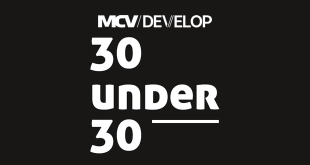A new State of the Game GDC poll shows that just 6 per cent of almost 4,000 respondents believe that the 30 per cent cut Valve takes from games sold on its Steam platform is justified.
The survey – which was carried out between November 27th and December 19th, 2018, and was underway when Valve announced plans to improve revenue sharing for AAAs and the Epic Store was announced – showed that while 47 per cent of game makers use Steam to sell their games, 32 per cent thought Steam did not do enough to justify its share of the profits, and 27 per cent opined it "probably" didn’t do enough. 26 per cent said they sold their games via their own site, publisher-owned platforms like Origins clocked in 18 per cent along with Itch.io, while Humble, GOG, and Discord came in at 17, 14, and 6 per cent respectively. Unsurprisingly perhaps, this meant most respondents (55 per cent) who used Steam saw the bulk of their profits – 75 per cent or more – come through Valve’s digital store.
"Take less revenue from sales and curate their store better for visibility for real games," said one respondent when asked what features they felt Steam could add to better serve developers, while another said Valve should provide "better support for amateur, hobbyist, and independent creators" and consider "fostering things like game jams and actual development communities to be created on the platform".
66 per cent of respondents develop for PC, followed by smart devices at 38 per cent, PlayStation 4 at 31 per cent, Xbox One at 28 per cent, and Macs with just 20 per cent. Nintendo’s hybrid Switch system came in at last place at just 18 per cent, but more respondents acknowledged an interest in developing for Switch this year than last. 16 per cent said they were developing for next-gen systems.
The survey also surmised that nearly half (44 per cent) of game makers work over 40 hours a week, 5 percent of respondents confirmed they averaged 51-60 hours of work per week, and 3 percent said they averaged 60+ hours. It also found that deadline-related crunch often saw staff going "far beyond normal working hours".
Perhaps unsurprisingly, nearly half of game industry professionals – 47 per cent – think the industry should unionise, with 26 per cent opting for a "maybe" response. Just 16 per cent said no (leaving 11 per cent saying they didn’t know). Of the respondents, though, only 21 per cent said they believed the industry would eventually unionise, with 39 per cent suggesting it wouldn’t or they didn’t know if it would.
"It is critical that people who work in games are able to maintain a healthy lifestyle, live normal lives, and be able to enjoy a high quality of life that will work well for their spouses and families," said one respondent, while another said: "There is too much supply: too many people want into the industry. Those who unionise will be shoved out of the way as companies hire those with fewer demands."
The full State of the Games Industry can be downloaded from the official website.
Indie developers recently took issue with changes to Steam’s revenue share policy that enables developers of the platform’s biggest games to retain more profit. Broadly in line with the profit share tiers across other platforms like Nintendo, PlayStation, and Xbox, Valve roughly takes a 30 per cent cut of all game sales published on its PC digital platform. Now, however, Valve has agreed to drop its share to 25 per cent once revenue surpasses $10 million, and then down to 20 per cent for sales over $50 million. The changes – which applied from October 1st, 2018 – apply to all revenue, including in-game purchases and DLC.

 MCV/DEVELOP News, events, research and jobs from the games industry
MCV/DEVELOP News, events, research and jobs from the games industry


![Reedah El Saie dragons den header 660x330 1 [From the industry] London businesswoman sparks investment for educational gaming company](https://mcvuk.com/wp-content/uploads/Reedah-El-Saie-dragons-den-header-660x330-1-310x165.jpg)

